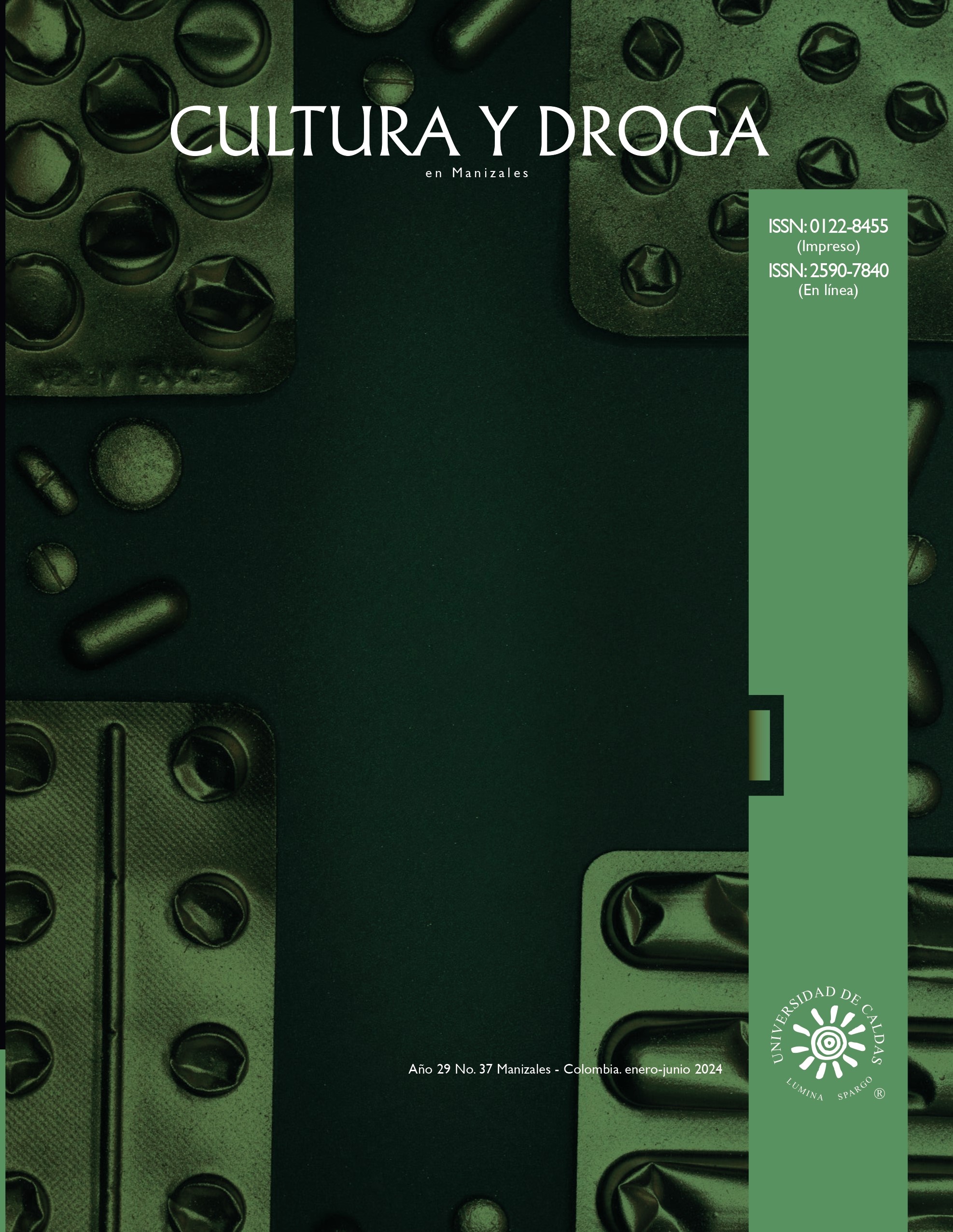Authors
Abstract
The book Pharmakon by Almudena Sánchez narrates the autobiographical experience of "depression" and her recovery through psychotropic drugs. We take the literary text as a narrative about the way in which these sufferings are expressed nowadays. In this sense, we consider the fiction as a source of hypotheses about health/disease, its cure and contemporary medicine.
Drugs and psychiatry appear in her narration as the means to inhabit and move through that sadness towards a possibility of thinking about something beyond death itself. With a frenetic and hilarious literary beauty, the book has an addictive rhythm, she manages to describe the deep sadness that has gone through her for more than two years, far from moralizing speeches and self-help.
The text is of interest to analyse the narrative of contemporary experiences about this condition, its attention and care, while mental suffering and the consumption of psychotropic drugs are becoming increasingly important as a global public health problem.
Keywords
References
Bongers, W. y Olbrich, T. (Comp). (2006). Literatura, Cultura, Enfermedad. Paidós.
Duarte-Nunes, E. (2018). Quando a narrativa cruza as disciplinas. Interfaz, 22(67) https://doi.org/10.1590/1807-57622017.0534
European Monitoring Center for Drugs and Drugs Addiction. (2020). Impact of COVID-19 on patterns of drug use and drug-related harms in Europe. EMCDDA trends potter briefing, Lisbon. https://doi.org/10.2810/830360
Foucault, M. (1987). El Nacimiento de la Clínica. Una arqueología de la mirada Médica. Siglo XXI editores.
Foucault, M. (2002). Historia de la locura en la época clásica. Fondo de Cultura Económica.
Grippaldi, E. (2021). ¿Por qué a mí? Narrativas del origen de la depresión en usuarios de servicios de la depresión en usuarios de servicios de salud mental. Cuadernos de la Facultad de Humanidades y Cs. Sociales. UNJu, (60), 239-267 https://orcid.org/0000- 0003-0549-2596
Horisch, J. (2006). “Las épocas y sus enfermedades. El saber patognóstico de la literatura”. En W. Bongers y T. Olbrich (comp.), Literatura, Cultura, Enfermedad. Paidós.
Laplantine, F. (1999). Antropología de la enfermedad. Ediciones del sol.
Martínez-Hernáez, Á. (2006). La mercantilización de los estados de ánimo: el consumo de antidepresivos y las nuevas biopolíticas de las aflicciones. Política y Sociedad, 43(3), 43-56.
Martínez-Hernáez, Á. (2014). La cerebralización de la adicción. Neuronarrativas de los consumidores de antidepresivos en Cataluña. Periferias, fronteras y diálogos, Actas del XIII Congreso de Antropología de la Federación de Asociaciones de Antropología del Estado Español, pp. 4346-4355.
Meccia, E. (2019). Cuéntame tu vida. Análisis sociobiográfico de narrativas del yo. En E. Meccia (Ed.), Biografías y sociedad. Métodos y perspectivas (pp. 63-96).Ediciones UNL y Eudeba.
Medeiros K. (2016). Narrative gerontology: countering the master narratives of aging. Narrat Works Issues Investig Interv., 6(1), 63-81. https://journals.lib.unb.ca/index.php/NW/article/view/25446
Narrative Works. (2016). Número especial: Narrativa a través de disciplinas. Issues Investig Interv., 6(1), 1-125. https://journals.lib.unb.ca/index.php/NW/issue/view/1900
OMS. (2022). World mental health report: transforming mental health for all. World Health Organization.
OMS. (2022). COVID-19 pandemic triggers 25% increase in prevalence of anxiety and depression worldwide. World Health Organization.PAHO. (2020). The Burden of Mental Disorders. https://www.paho.org/en/enlace/burden-mentaldisorders
PAHO. (2021). The burden of mental disorders in the Region of the Americas, 2000-2019. Pan American Health Organization.
Sy, A. (2015). De la Literatura a la Historia: Cuando la locura se convierte en desviación social. Estud. filol., (55), 129-141. http://dx.doi.org/10.4067/S0071-17132015000100008
Sy, A. (2018). La medicalización de la vida: hibridaciones ante la dicotomía Naturaleza/Cultura. Ciência & Saúde Coletiva, 23(5), 1531-1539. https://doi.org/10.1590/1413-81232018235.10212016

 PDF (Español)
PDF (Español)
 FLIP
FLIP






















